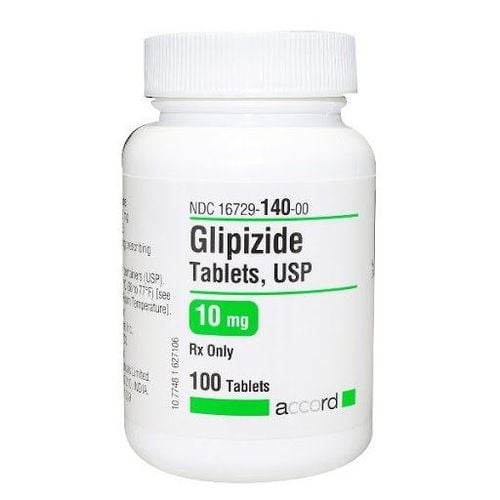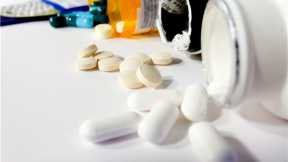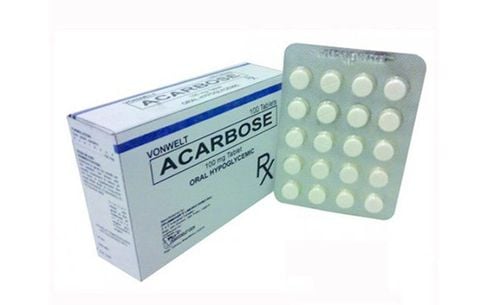This is an automatically translated article.
Gliclazide 80mg drug belongs to the group of hormones and hormones, with the composition of Gliclazide, 80mg tablets. In addition, Gliclazide is also available in the form of 40mg tablets; 30mg and 60mg extended release tablets. Gliclazide is used to treat diabetes.1. Indications and contraindications for Gliclazide 80mg
Indications: Gliclazide is an active antidiabetic sulfonylurea. Gliclazide 80mg is indicated for the treatment of adult-onset diabetes mellitus (type 2 diabetes mellitus).
Contraindications:
Patients with hypersensitivity to the composition of the drug, other sulfonylureas, sulfonamides; Type 1 diabetes; Diabetic pre-coma, coma; Diabetes complicated by acidosis or ketosis; Diabetics after severe trauma, infection or surgery; Patients with severe hepatic or renal impairment: Insulin is recommended instead of Gliclazide; Persons being treated with miconazole; Women who are breastfeeding.
2. Usage and dosage of Gliclazide 80mg
How to use: Diabetes medicine Gliclazide 80mg used orally.
Dosage: The total daily dose may vary between 40 - 320mg. Dosage is adjusted according to patient response, starting with 40-80 mg/day, gradually increasing until adequate disease control is achieved. A single dose should not exceed 160mg. When higher doses are needed, patients can use Gliclazide twice a day, following the main meals of the day. In patients who are obese or who have not responded adequately to Gliclazide, additional treatment may be required.
Overdose: Using an overdose of Gliclazide can cause hypoglycemia. Specific treatment:
With moderate symptoms of hypoglycaemia, with no signs of loss of consciousness or nerves, it is necessary to treat with carbohydrate supplementation, dose adjustment or dietary change. Follow-up should be continued until the patient is determined to have passed the critical crisis; In the event of a severe hypoglycaemic reaction (coma, convulsions, neurological disturbances), immediate emergency treatment is required. If hypoglycemic coma is suspected, the patient should be given 50 mL of a concentrated glucose solution rapidly intravenously (20-30%), followed by an infusion of a more dilute glucose solution (10%) at a rate that maintains the blood glucose level. over 1g/l. Patients need to be closely monitored blood sugar and health. Missed dose: When a patient forgets a dose, it should be taken as soon as he remembers. If it is almost time for the next dose, skip the missed dose and continue with the next scheduled dose as originally scheduled.
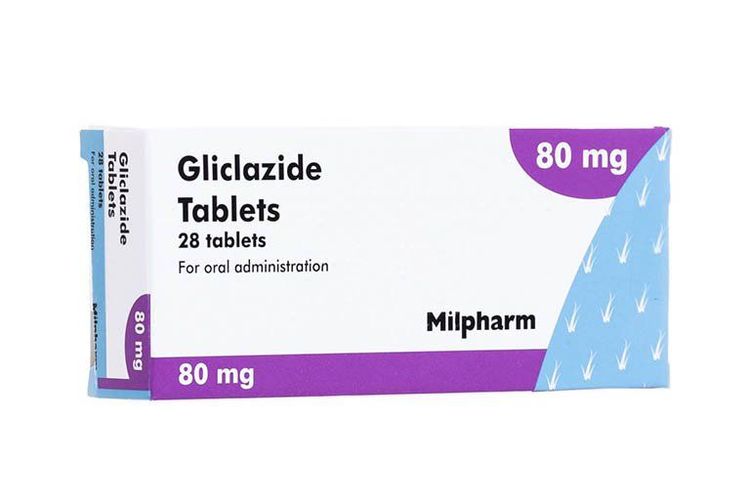
Thuốc gliclazide 80mg cần được sử dụng chính xác
3. Side effects of Gliclazide 80mg
When using Gliclazide 80mg, patients may experience some side effects such as:
Hypoglycemia; Digestive disorders: Abdominal pain, nausea, vomiting, diarrhea, dyspepsia, constipation; Skin and Subcutaneous Tissue Disorders: Rash, urticaria, pruritus, erythema, angioedema, maculopapular rash, bullous reaction,...; Blood and lymphatic system disorders: Anemia, thrombocytopenia, leukopenia, agranulocytosis; Hepatobiliary disorders: Increased liver enzymes or hepatitis; Eye disorders: Transient visual disturbances (especially at the beginning of treatment). When experiencing side effects of the drug, the patient should stop using it, notify the doctor for timely treatment and treatment.
4. Be careful when using Gliclazide 80mg
Before using Gliclazide 80mg, patients need to be careful:
Hypoglycemia: Gliclazide should only be used if the patient is able to eat regularly. Patients need to eat a regular carbohydrate intake because the risk of hypoglycemia is increased if eating late, consuming too little food or food with low carbohydrate content; Hepatic and renal impairment: The pharmacokinetics or pharmacokinetics of Gliclazide may be altered in patients with severe hepatic or renal impairment; Poor blood sugar control: The ability to control blood sugar in a patient being treated for diabetes can be affected by fever, infection, trauma, surgical intervention, etc. Diabetes medications are common. reduced effectiveness over time. This may be due to disease progression or decreased response to treatment; Patients receiving Gliclazide 80mg and fluoroquinolone concomitantly may experience hypoglycemia or hyperglycemia; Gliclazide treatment for patients with G6PD deficiency can cause hemolytic anemia; There are no detailed studies on the use of Gliclazide in pregnant and lactating women. Therefore, it is best to avoid using this drug for women during pregnancy and lactation.
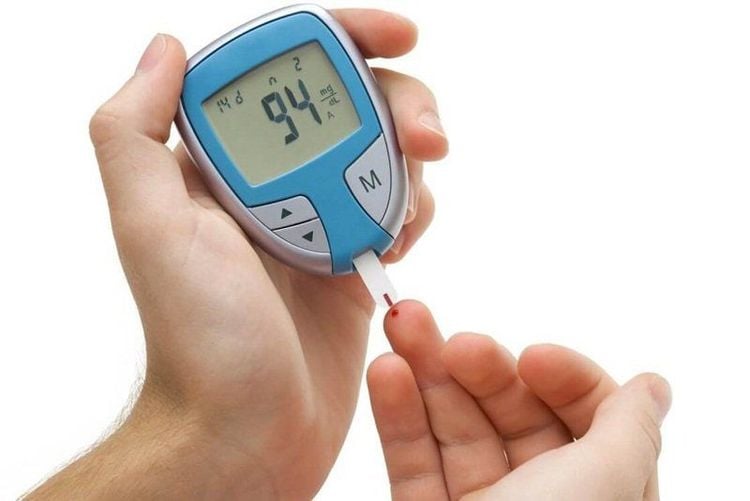
Người bệnh gặp vấn đề đường huyết nên thận trọng khi sử dụng Gliclazide 80mg
5. Gliclazide 80mg . drug interactions
Some drug interactions of Gliclazide 80mg include:
Phenylbutazone (systemic route): Increases the hypoglycemic effect of Gliclazide; Danazol: Danazol has the potential to cause diabetes, should not be used with Gliclazide. If co-administered, regular urine and blood glucose monitoring or dose adjustment of antidiabetic drugs is required; Alcohol: Increases hypoglycemic response, possibly leading to hypoglycemic coma; Chlorpromazine (a neuroleptic): Taking high doses of Chlorpromazine (over 100mg/day) increases blood glucose levels; Glucocorticoids (systemic and topical): Increases blood glucose levels; Ritodrine, salbutamol, terbutaline (IV): Increases blood glucose levels. Therefore, patients need to closely monitor blood sugar, can switch to insulin; Fluoroquinolones: When using Gliclazide and fluoroquinolone concurrently, patients should pay attention to blood glucose monitoring because of the risk of blood sugar disturbances. Gliclazide 80mg is indicated for the treatment of type 2 diabetes. Before taking the drug, the patient should inform the doctor about the medicines he is using for instructions on how to take the medicine and the appropriate dose. .
Follow Vinmec International General Hospital website to get more health, nutrition and beauty information to protect the health of yourself and your loved ones in your family.
Please dial HOTLINE for more information or register for an appointment HERE. Download MyVinmec app to make appointments faster and to manage your bookings easily.





